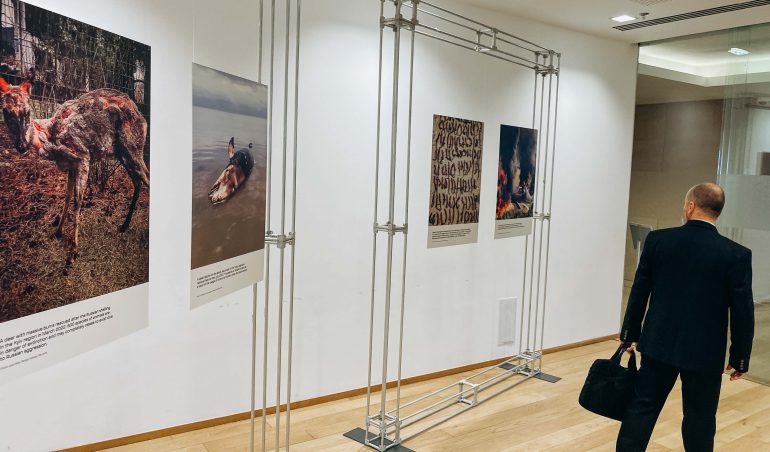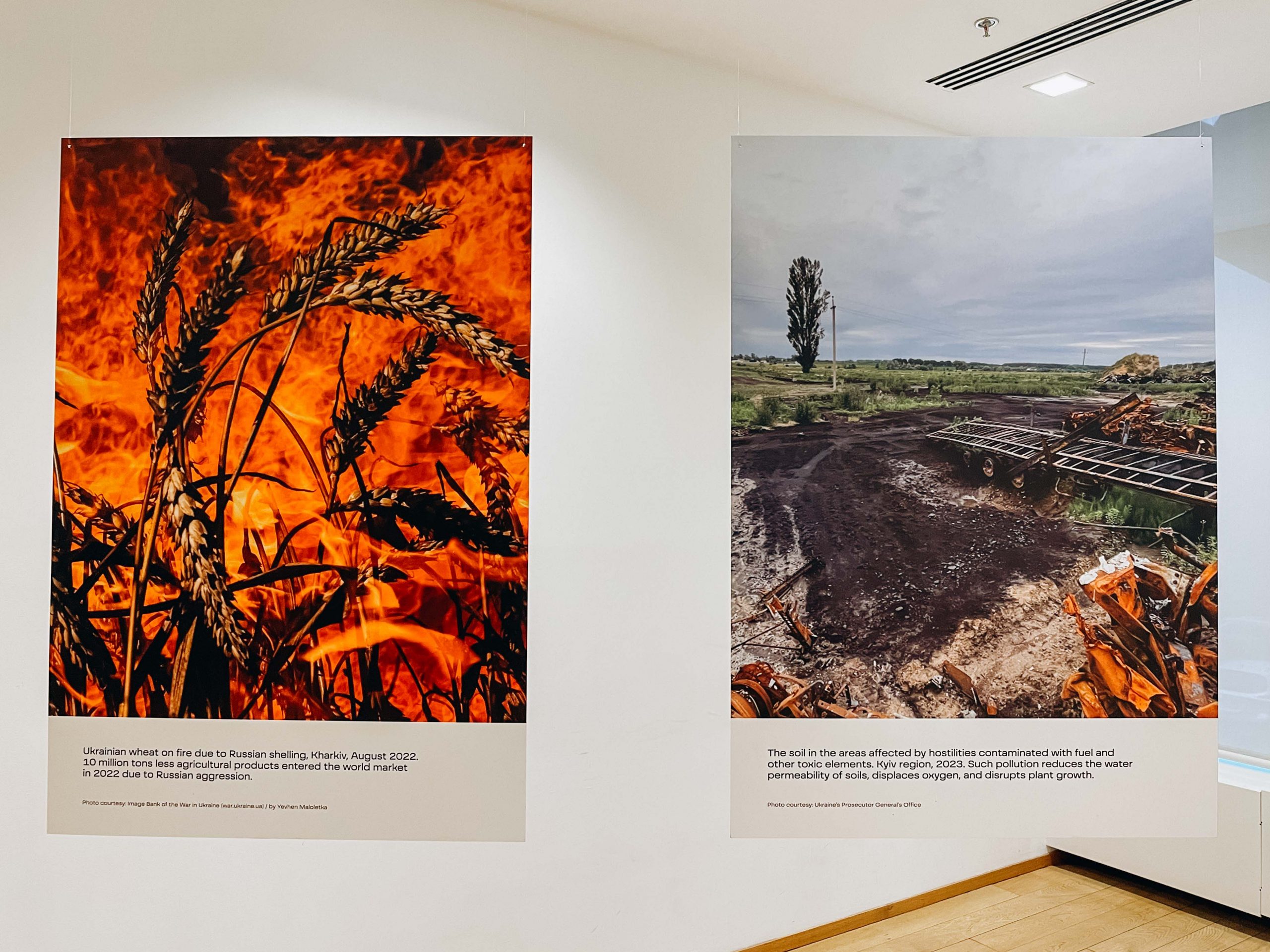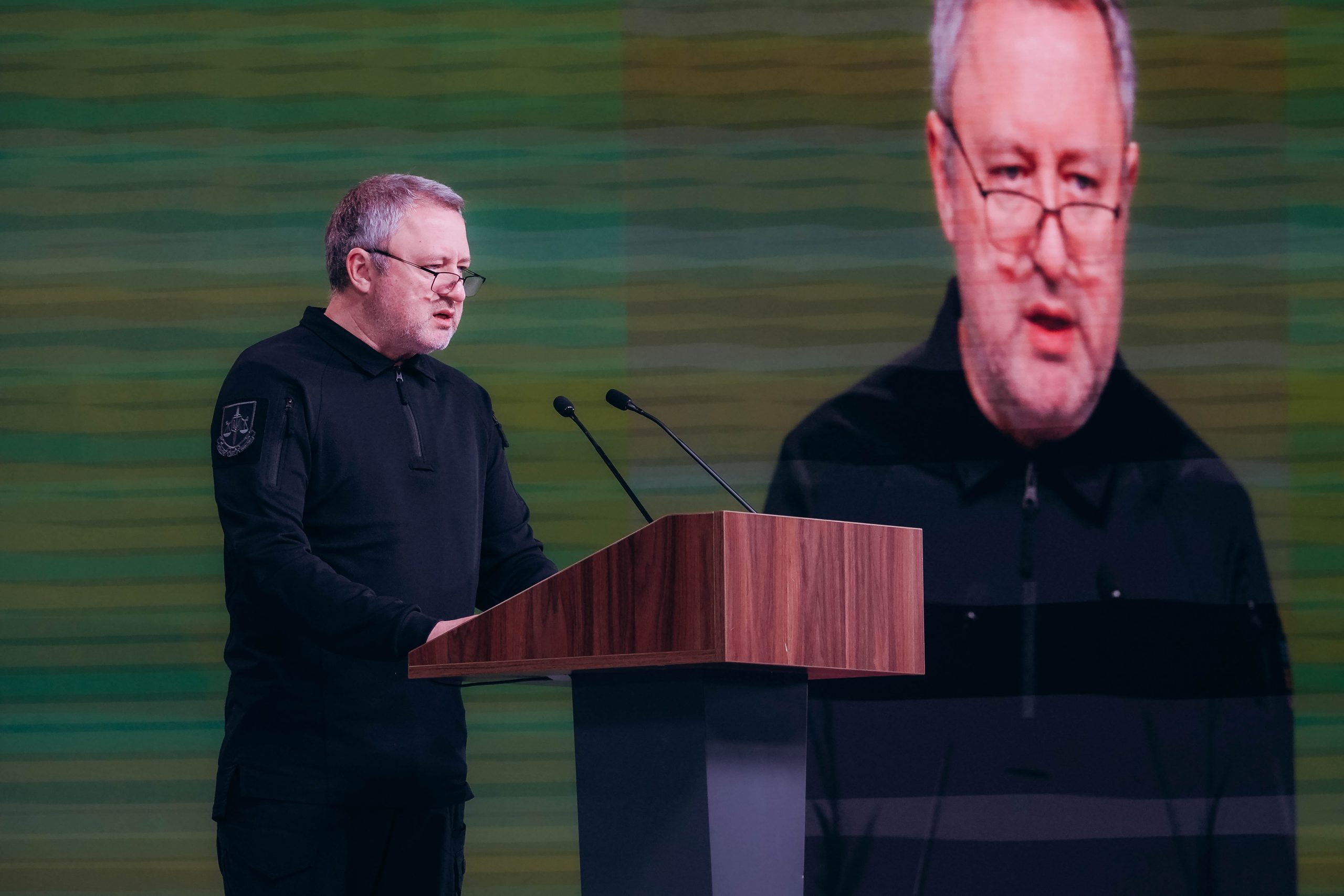Ecocide in Ukraine won’t go unpunished. United for Justice. United for Nature
October 25, 2023
Russia uses the destruction of the environment as a weapon of war in Ukraine.
This can no longer be sidelined as “collateral damage”. It is a crime in Ukrainian law, and it has a name: “Ecocide”. The consequences are devastating, long term and widespread.
Ecocide has a proposed international legal definition, to be possibly included in the Rome’s Statute of the International Criminal Court as a new article 8 ter. It means “unlawful or wanton acts committed with knowledge that there is a substantial likelihood of severe and either widespread or long-term damage to the environment being caused by those acts”.
The destruction of the Kakhovka Dam is an example of Ukraine’s suffering being shared, as the environment does not recognise borders.
Direct and indirect catastrophic environmental damage is caused upstream and downstream, including the large-scale pollution of the Black Sea with oil, sediment, pesticides, debris, and chemicals. Living organisms, their habitats, and a massive diversity of wildlife, have been destroyed, leading to a profound loss of biodiversity and damage to ecosystems throughout Ukraine.

This has real consequences on climate change and food security across the globe, as this has devastating knock-on effects, being Ukraine is a major agricultural power, playing a key role in the grain and edible oil markets.
Ukraine is pioneering the prosecution of such crimes in seeking to bring to justice the perpetrators of environmental crimes. The EU Advisory Mission (EUAM) Ukraine is contributing to this collective effort by the means of its current mandate, by supporting the investigation and prosecution of International Crimes.
Within this framework, the Mission played a key role in United for Justice. United for Nature, a conference that took place in Kyiv on 20-21 October, launched as a pioneering effort to enhance the international legal architecture on environmental crimes.
The conference, organised by the Office of the Prosecutor General of Ukraine and the Ministry of Environmental Protection and Natural Resources of Ukraine, brought together leading experts and decision makers from around the world to take stock of the current law, science, and economics regarding accountability for wartime environmental damage. It also allowed for drawing upon a growing body of practice in both criminal and civil spheres regarding norms, standards, techniques, and liability.

As the Prosecutor General of Ukraine, Andriy Kostin, mentioned, Ukraine is the first country investigating crimes against the environment as war crimes.
Opening the conference, the Prime Minister of Ukraine, Denys Shmyhal, underlined the ultimate purpose of such a collective effort as for “the next generation” being able to “live in peace and stability”.
Featured speakers and participants included representatives of the High-Level Working Group on the Environmental Consequences of the War, established by the Office of the President of Ukraine, United Nations Programs, representatives of European Union Institutions, the International Criminal Court, the Atrocity Crimes Advisory Group, and a range of other prominent experts.

Margot Wallström, former Deputy Prime Minister and former Minister of Foreign Affairs of Sweden, recalled in her intervention the three main tasks of the mentioned High-Level Working Group, which she co-chairs: assessing the damage already inflicted on the environment in Ukraine, holding those responsible for the losses, and restoring the natural environment and ecosystems after combat operations. “The fate of Ukraine is our fate” Wallström said, underlying how Ukraine is “fighting the enemy for the sake of the whole world”.

“Russia seems willing to blatantly use massive environmental damage as a tactic in its war against Ukraine” said EUAM Ukraine’s Head of Mission, Rolf Holmboe, during the opening speeches, underlying how he had the opportunity to “witness firsthand the vast difficulties Ukraine faces in dealing with the widespread, long-lasting, and systematic damage caused to Ukraine’s environment”.
United for Justice. United for Nature’s engagement aims at bringing the perpetrators of ecocide in Ukraine and elsewhere to justice, one day, and to prevent for such crimes to be committed again in the future. So that no one can longer call “collateral damage” what is a war crime called “ecocide”.


